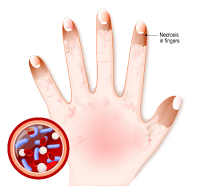Critical care medicine in Kukatpally is essential for providing intensive treatment to patients facing life-threatening conditions. This specialty focuses on delivering high-quality care to individuals who require immediate attention and constant monitoring. Hospitals in Kukatpally are equipped with advanced technology and staffed by dedicated professionals who ensure that critically ill patients receive the best possible care.

Critical care Medicine hospital in Kukatpally
When looking for a critical care medicine hospital in Kukatpally, it is important to consider facilities that prioritise patient health and safety. These hospitals have specialised intensive care units (ICUs) designed to monitor and treat patients with serious health issues. The team at these facilities consists of doctors, nurses, and specialists who work together to create a comprehensive care plan for each patient.
In these hospitals, critical care services include constant monitoring of vital signs, advanced respiratory support, and cardiac care. By providing timely interventions, these hospitals significantly enhance the chances of recovery for critically ill patients.

Advanced Medical Equipment and Facilities
Critical care hospitals in Kukatpally utilise state-of-the-art medical equipment to improve patient outcomes. Monitoring devices track vital signs, including heart rate, blood pressure, and oxygen levels, allowing healthcare providers to respond quickly to any changes in a patient’s condition. This real-time monitoring is crucial for managing patients who are critically ill.
Additionally, hospitals are equipped with advanced respiratory support systems. For patients who struggle to breathe, ventilators provide essential oxygen and help maintain lung function. The combination of skilled healthcare professionals and advanced technology ensures that patients receive the highest standard of care during their stay.
Multidisciplinary Team Collaboration
A multidisciplinary team approach is a key feature of critical care medicine in Kukatpally. Each hospital brings together experts from various fields to provide comprehensive care for critically ill patients. The team typically includes intensivists, nurses, respiratory therapists, and pharmacists.
Intensivists oversee the medical management of patients in the ICU, ensuring that all treatments align with best practices. Respiratory therapists focus on optimising lung function, while pharmacists provide guidance on medication management. This collaborative approach ensures that every aspect of a patient’s health is addressed effectively and promptly.
Patient-Centred Care Practices
Patient-centred care is a guiding principle in critical care medicine. Hospitals in Kukatpally emphasise the importance of involving patients and their families in the care process. Open communication helps families understand treatment options and participate in decision-making regarding their loved ones’ health.
Moreover, hospitals prioritise emotional support for patients and their families during challenging times. Healthcare providers are trained to offer reassurance and compassion, creating a supportive environment. This focus on emotional well-being contributes to a positive patient experience, even during difficult circumstances.
Ethical Considerations in Critical Care
Ethical considerations play a significant role in the field of critical care medicine. Healthcare providers often face complex decisions regarding treatment options and end-of-life care. Hospitals in Kukatpally strive to adhere to ethical guidelines that ensure fair and compassionate treatment for all patients.
Engaging in open discussions with patients and families allows healthcare providers to navigate challenging situations effectively. Respecting patients’ wishes and values is crucial when making informed decisions that align with their preferences and goals of care.
Community Engagement and Health Awareness
Community engagement is vital for promoting awareness about critical care services. Hospitals in Kukatpally often conduct outreach programs to educate the public about recognizing critical health issues and the importance of early intervention. These initiatives aim to encourage timely medical care when necessary.
By providing information about common signs of emergencies, hospitals empower individuals to act quickly and seek help. Increased awareness can lead to better health outcomes for patients who may require critical care, ultimately benefiting the community as a whole.
Future Trends in Critical Care Medicine
The future of critical care medicine in Kukatpally is promising, with several emerging trends that aim to enhance patient care. One significant trend is the increasing use of telemedicine in critical care settings. This technology allows specialists to consult with on-site teams quickly, ensuring that patients receive timely and expert advice.
Additionally, the development of personalised medicine is transforming the approach to critical care. Tailoring treatment plans based on individual patient characteristics can lead to more effective interventions. By focusing on specific needs, healthcare providers can improve health outcomes and reduce the risk of complications.
Enhanced Recovery Protocols
In recent years, hospitals in Kukatpally have begun adopting enhanced recovery protocols to support patients in critical care settings. These protocols focus on minimising complications and promoting quicker recovery times. By implementing evidence-based practices, hospitals ensure that patients receive the best possible care.
These protocols may include early mobilisation, optimised nutrition, and pain management strategies. Each element contributes to a smoother recovery process, allowing patients to return to their daily lives as quickly as possible.
Importance of Continuous Monitoring
Continuous monitoring is a cornerstone of critical care medicine. Hospitals in Kukatpally utilise advanced monitoring systems to keep track of patients’ vital signs at all times. This constant surveillance enables healthcare providers to detect any changes in a patient’s condition rapidly.
Early detection of complications can make a significant difference in patient outcomes. For example, timely intervention for changes in heart rate or blood pressure can prevent further deterioration and improve recovery chances. This proactive approach is essential in critical care settings.
Role of Family Involvement
Family involvement is crucial in the critical care environment. Hospitals in Kukatpally recognize the importance of keeping families informed and involved in their loved ones’ care. Open lines of communication between healthcare providers and families create a supportive network for patients.
By providing regular updates and encouraging family participation, hospitals help alleviate anxiety and foster a sense of trust. Families play a vital role in supporting patients emotionally during their recovery journey.
Conclusion
In conclusion, critical care medicine in Kukatpally is a vital aspect of healthcare, dedicated to managing patients with severe health conditions. With advanced medical equipment, a multidisciplinary team approach, and a commitment to patient-centred care, hospitals in this area are well-equipped to provide high-quality services. As healthcare continues to evolve, critical care hospitals will adapt to new technologies and practices to enhance patient outcomes. By ensuring access to critical care services, they play an essential role in promoting health and well-being within the community.






